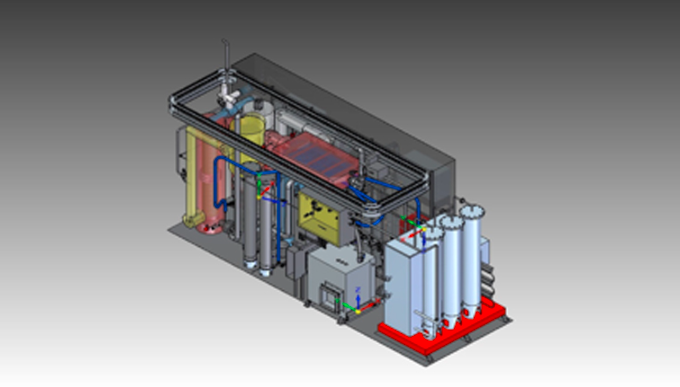Hydrogen Generators in China: An Overview

Hydrogen generators in China are part of the country’s growing focus on sustainable energy solutions and advanced technology. These generators are designed to produce hydrogen gas through various methods, including electrolysis and chemical reactions, to be used in a range of applications from industrial processes to fuel cell vehicles. Here’s a detailed look at the hydrogen generator industry in China, including its key components, benefits, and market trends.
1. Hydrogen Generators: Technology and Function
1.1 Basic Operation
- Electrolysis: Many hydrogen generators use electrolysis to produce hydrogen. This process involves passing an electric current through water (H₂O) to separate it into hydrogen (H₂) and oxygen (O₂).
- Chemical Reactions: Some generators use chemical reactions to produce hydrogen from hydrocarbons or other materials, often involving reforming or gasification processes.
1.2 Types of Hydrogen Generators
- Alkaline Electrolyzers: These are widely used in industrial applications for their reliability and cost-effectiveness. They operate by using alkaline solutions to facilitate electrolysis.
- Proton Exchange Membrane (PEM) Electrolyzers: Known for their compact size and high efficiency, PEM electrolyzers are often used in applications requiring high-purity hydrogen.
- Solid Oxide Electrolyzers: These high-temperature systems are used for large-scale hydrogen production and can achieve high efficiencies.
2. Hydrogen Generator Industry in China
2.1 Market Overview
- Growth Trends: China’s hydrogen generator market is expanding rapidly due to the country’s commitment to reducing carbon emissions and investing in clean energy technologies. The growth is driven by both domestic demand and increasing interest in hydrogen as a clean fuel source.
- Key Players: China is home to several prominent hydrogen generator manufacturers and suppliers, including both domestic companies and international firms with operations in the country.
2.2 Applications
- Industrial Use: Hydrogen generators are used in various industrial processes, including petrochemical refining, ammonia production, and metal processing.
- Fuel Cells: In the automotive sector, hydrogen generators support the production of hydrogen for fuel cell vehicles, which are gaining popularity as an alternative to traditional fossil fuel-powered cars.
- Energy Storage: Hydrogen generators also play a role in energy storage systems, converting excess electricity into hydrogen that can be stored and used later.
Read also: Experience Opulence with Luxury Car Rental in Dubai
3. Benefits of Hydrogen Generators
3.1 Environmental Impact
- Reduction in Emissions: Hydrogen generators produce clean hydrogen that, when used as a fuel, results in only water as a byproduct, reducing greenhouse gas emissions.
- Support for Renewable Energy: Hydrogen production can be integrated with renewable energy sources such as wind and solar to create a sustainable energy cycle.
3.2 Economic Advantages
- Cost Efficiency: Advances in technology are driving down the costs of hydrogen production, making it more competitive with traditional energy sources.
- Job Creation: The hydrogen sector is creating jobs and fostering economic growth in areas related to technology development, manufacturing, and infrastructure.
3.3 Energy Security
- Diversification of Energy Sources: Hydrogen generators contribute to energy diversification, reducing reliance on fossil fuels and enhancing energy security.
4. Challenges and Considerations
4.1 Technical and Financial Challenges
- Initial Costs: The upfront investment for hydrogen generation equipment and infrastructure can be high, though costs are decreasing as technology advances.
- Infrastructure Development: Building a robust hydrogen infrastructure, including storage and distribution networks, is essential for widespread adoption.
4.2 Technological Development
- Efficiency Improvements: Continued research and development are needed to improve the efficiency and scalability of hydrogen generation technologies.
- Safety Concerns: Hydrogen is highly flammable, so safety measures must be implemented to handle and store hydrogen safely.
5. Future Outlook
5.1 Market Expansion
- Increasing Adoption: The demand for hydrogen generators in China is expected to grow as the country continues to focus on clean energy solutions and environmental sustainability.
- Innovation and Research: Ongoing advancements in hydrogen generation technologies are likely to enhance performance, reduce costs, and broaden applications.
5.2 Policy Support
- Government Initiatives: China’s government is supporting the development of hydrogen technologies through subsidies, incentives, and strategic plans aimed at fostering the growth of the hydrogen economy.
6. Conclusion
Hydrogen generator China sustainable technology. By improving hydrogen production methods and expanding applications, these generators contribute significantly to environmental goals, energy security, and economic growth. As technology continues to evolve and market conditions improve, hydrogen generators are poised to play an increasingly important role in China’s energy landscape.





